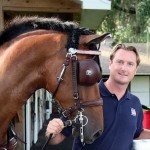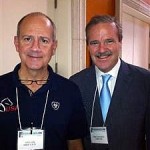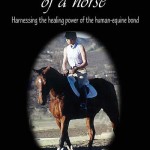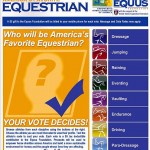
Ocala, FL (April 14, 2011) – Fans of United States Combined Driver Chester Weber have the chance to keep voting for Weber by phone or online in order to keep him in the running for America’s Favorite Equestrian. Each vote costs $5 and 100% of the donations will be used to support horse and equestrian charitable causes across the country.
Weber, a member of the winning Silver Medal 2010 Alltech FEI World Equestrian Games Combined Driving team and the eight-time USEF National Four-In-Hand Champion, has made it through the first round of America’s Favorite Equestrian. Weber was among eight drivers in the Driving category of America’s Favorite Equestrian, but as of March 31, the six drivers with the most votes continue on to Round 2.
The America’s Favorite Equestrian contest is an interactive fund raising effort presented jointly by partnership of The EQUUS Foundation and The United States Equestrian Federation (USEF) to raise funds to advance the equestrian sport on an annual basis. The contest started with eight equestrians from each discipline: jumping, driving, dressage, eventing, reining, vaulting, endurance, and para-equestrian.
Read more> http://www.horsesinthesouth.com/article/article_detail.aspx?id=13587




